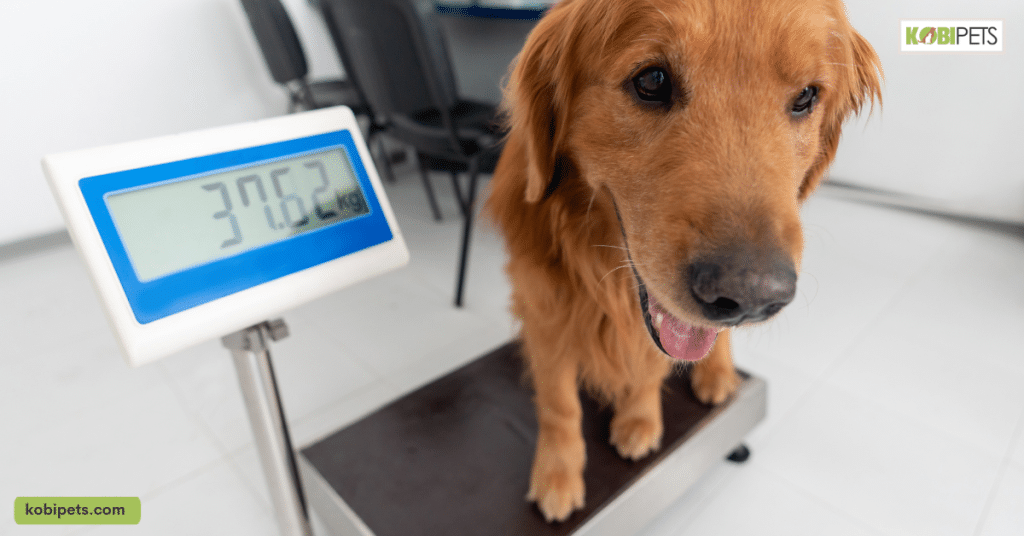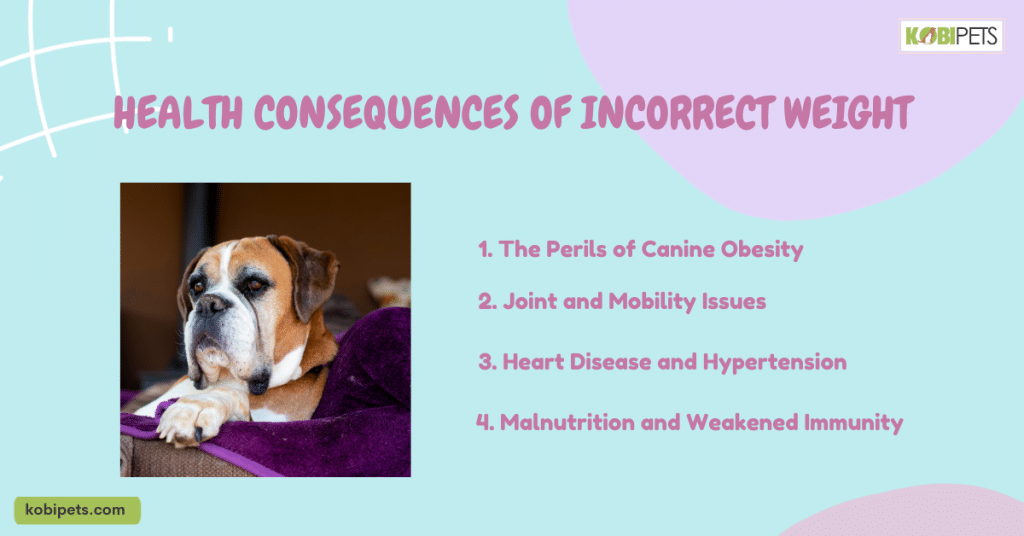
Determining the ideal weight for your dog is crucial for their overall health and well-being. It’s essential to consult with your veterinarian to assess your dog’s breed, age, and individual needs to establish a healthy weight range. Maintaining a proper weight can help prevent various health issues and ensure your furry friend enjoys a happy and active life.
Discovering your dog’s ideal weight is a vital aspect of their overall health and well-being. In this guide, we’ll explore the factors influencing their weight, how to determine the right weight, the health implications of incorrect weight, and tips for maintaining a healthy balance. Join us on this journey to ensure a happier and healthier life for your furry companion.
Factors Influencing Your Dog’s Ideal Weight
When it comes to your dog’s well-being, finding their ideal weight is far from a one-size-fits-all solution. Various factors come into play, and understanding them is key to ensuring your canine companion’s health and happiness. In this segment, we’ll delve into the critical considerations that influence your dog’s ideal weight.
- Breed Characteristics: Different dog breeds have unique body structures and genetic predispositions. This section will explore how breed-specific traits can impact your dog’s ideal weight. From the compact Dachshund to the robust Labrador Retriever, understanding breed characteristics is essential.
- Age Matters: Age is not just a number; it plays a pivotal role in determining your dog’s ideal weight. We’ll discuss how puppies, adult dogs, and seniors have varying nutritional needs and how age-related factors influence their weight requirements.
- Size and Proportion: Size does matter when it comes to your dog’s weight. In this subsection, we’ll explore how a dog’s size and body proportions contribute to defining their ideal weight. Whether you have a pint-sized Pomeranian or a majestic Great Dane, proportionality is key.
- Activity Level: Your dog’s activity level and exercise regimen directly impact their weight management. We’ll delve into the connection between exercise, energy expenditure, and maintaining an optimal weight for your four-legged friend.
- Genetic Variations: Genetics can’t be overlooked when considering your dog’s weight. This part of the discussion will highlight how genetic factors can affect metabolism, muscle mass, and overall weight tendencies in dogs.
- Individual Variations: Every dog is unique, and individual variations matter. We’ll explore how your dog’s specific health history, metabolism, and lifestyle choices contribute to determining their ideal weight.
Understanding the intricate web of factors that influence your dog’s ideal weight is a crucial step toward providing them with the best possible care. By considering breed characteristics, age, size, activity level, genetics, and individual variations, you can tailor your diet and exercise routines for a healthier, happier life.

Determining Your Dog’s Ideal Weight
In this section, we’ll walk you through a systematic process for determining the perfect weight for your four-legged friend. From body condition score charts to professional guidance from your veterinarian, we’ll cover it all, empowering you to make informed decisions about your dog’s well-being.
| Method | Description |
|---|---|
| Body Condition Score (BCS) | Understand how to use BCS charts to assess your dog’s body condition, considering factors like ribs, waist, and overall muscle mass. |
| Consulting with a Veterinarian | The importance of professional guidance in determining your dog’s ideal weight and tailoring a customized plan based on their unique needs. |
| Assessing Body Composition | Learn how to assess your dog’s body composition by examining muscle and fat distribution, which can be crucial in determining their ideal weight. |
| Comparing with Breed Standards | Explore breed-specific standards and guidelines to help gauge what a healthy weight looks like for your particular dog breed. |
| Monitoring Over Time | Understand the significance of regular weight monitoring and the role it plays in adjusting your dog’s diet and exercise routine. |
Whether you use body condition score charts, consult with your trusted veterinarian, assess body composition, refer to breed standards, or maintain consistent weight monitoring, your dog’s well-being is in good hands. In the upcoming sections, we’ll delve into the potential health consequences of incorrect weight and offer guidance on maintaining a healthy balance.

Health Consequences of Incorrect Weight
Your dog’s weight isn’t just a number on a scale; it’s a critical factor affecting their overall health. In this section, we’ll uncover the serious health consequences that can arise when your dog’s weight is not within the healthy range. Whether it’s excess pounds leading to obesity-related issues or being underweight causing malnutrition concerns, understanding these risks is essential for responsible pet ownership.

Health Consequences of Incorrect Weight
1. The Perils of Canine Obesity
Obesity in dogs is more than just a cosmetic concern; it’s a serious health risk. Carrying excess weight can lead to a range of health issues, including an increased risk of diabetes. The additional fat tissue produces hormones that can cause insulin resistance, making diabetes more likely to develop.
Furthermore, obesity places significant stress on your dog’s joints, leading to conditions like arthritis. The extra weight forces joints to bear more load, accelerating joint wear and tear. Over time, this can result in chronic pain and decreased mobility.

2. Joint and Mobility Issues
Carrying excess weight can be particularly tough on your dog’s joints. The increased stress on joints can lead to joint problems, including conditions like hip dysplasia and osteoarthritis. Hip dysplasia is a genetic condition that can be exacerbated by obesity. The extra weight places more pressure on the hip joints, leading to discomfort and reduced mobility.
Osteoarthritis, on the other hand, is a degenerative joint disease that is more common in overweight dogs. The inflammation and damage caused by obesity can accelerate the development of arthritis, causing pain and stiffness.

3. Heart Disease and Hypertension
Obesity can also have a significant impact on your dog’s cardiovascular health. The extra weight can place stress on the heart, leading to heart disease. Dogs with obesity are at a higher risk of conditions like congestive heart failure. Additionally, obesity is associated with hypertension, or high blood pressure, in dogs.
Hypertension can further strain the heart and lead to various health complications. It’s crucial to recognize that maintaining a healthy weight can reduce the risk of these heart-related issues in your dog.

4. Malnutrition and Weakened Immunity
While much attention is placed on the dangers of obesity, being underweight also poses significant health concerns. Underweight dogs are more prone to malnutrition, as their bodies lack the necessary nutrients for proper growth and functioning. This can lead to weakness, lethargy, and a compromised immune system, making your dog more susceptible to infections and illnesses.
Understanding the health consequences of incorrect weight in dogs is paramount to their well-being. Whether it’s the risks associated with obesity or the challenges of being underweight, responsible pet owners must be proactive in maintaining their dog’s ideal weight. In the following sections, we’ll provide valuable tips and guidance on achieving and maintaining a healthy balance for your furry companion.

Maintaining a Healthy Weight
We’ll cover essential topics such as nutrition, portion control, exercise routines, and lifestyle adjustments, all geared toward ensuring your dog’s long-term well-being. Additionally, we’ll stress the significance of regular veterinary check-ups and continuous weight monitoring to keep your beloved pet in the best shape possible.
| Topic | Description |
|---|---|
| Nutrition Essentials | Explore the importance of providing a balanced diet tailored to your dog’s specific needs, including age, breed, and activity level. Understand the significance of choosing high-quality dog food and the impact of portion sizes on weight management. |
| Portion Control and Feeding Schedules | Learn how to portion meals effectively to prevent overfeeding or underfeeding. We’ll discuss feeding schedules and feeding methods that promote weight control and good eating habits. |
| Exercise and Playtime | Discover the vital role exercise plays in maintaining a healthy weight. We’ll provide exercise recommendations for different breeds and ages, ensuring your dog gets the right amount of physical activity. |
| Lifestyle Adjustments | Explore how lifestyle factors, such as treats and table scraps, can influence your dog’s weight. We’ll offer tips on making necessary adjustments to your dog’s daily routine to promote weight management. |
| Regular Vet Check-ups | Emphasize the importance of routine veterinary visits. Regular check-ups help detect weight-related issues early and allow for timely adjustments to your dog’s health plan. |
| Monitoring Your Dog’s Weight | Learn how to keep a watchful eye on your dog’s weight, including recognizing signs of weight gain or loss. We’ll discuss the use of body condition score charts and the role of consistent monitoring in your pet’s health. |
Maintaining a healthy weight is not just a one-time effort; it’s an ongoing commitment to your dog’s well-being. By focusing on nutrition, portion control, exercise routines, lifestyle adjustments, regular vet check-ups, and vigilant weight monitoring, you can ensure that your canine companion enjoys a vibrant and fulfilling life.

Conclusion
Maintaining your dog’s ideal weight is a vital commitment. To summarize, focus on balanced nutrition, portion control, regular exercise, and lifestyle adjustments. Prioritize vet check-ups and consistent weight monitoring to ensure your furry companion’s lasting well-being. Your dedication ensures a happy, healthy life for your beloved pet.






